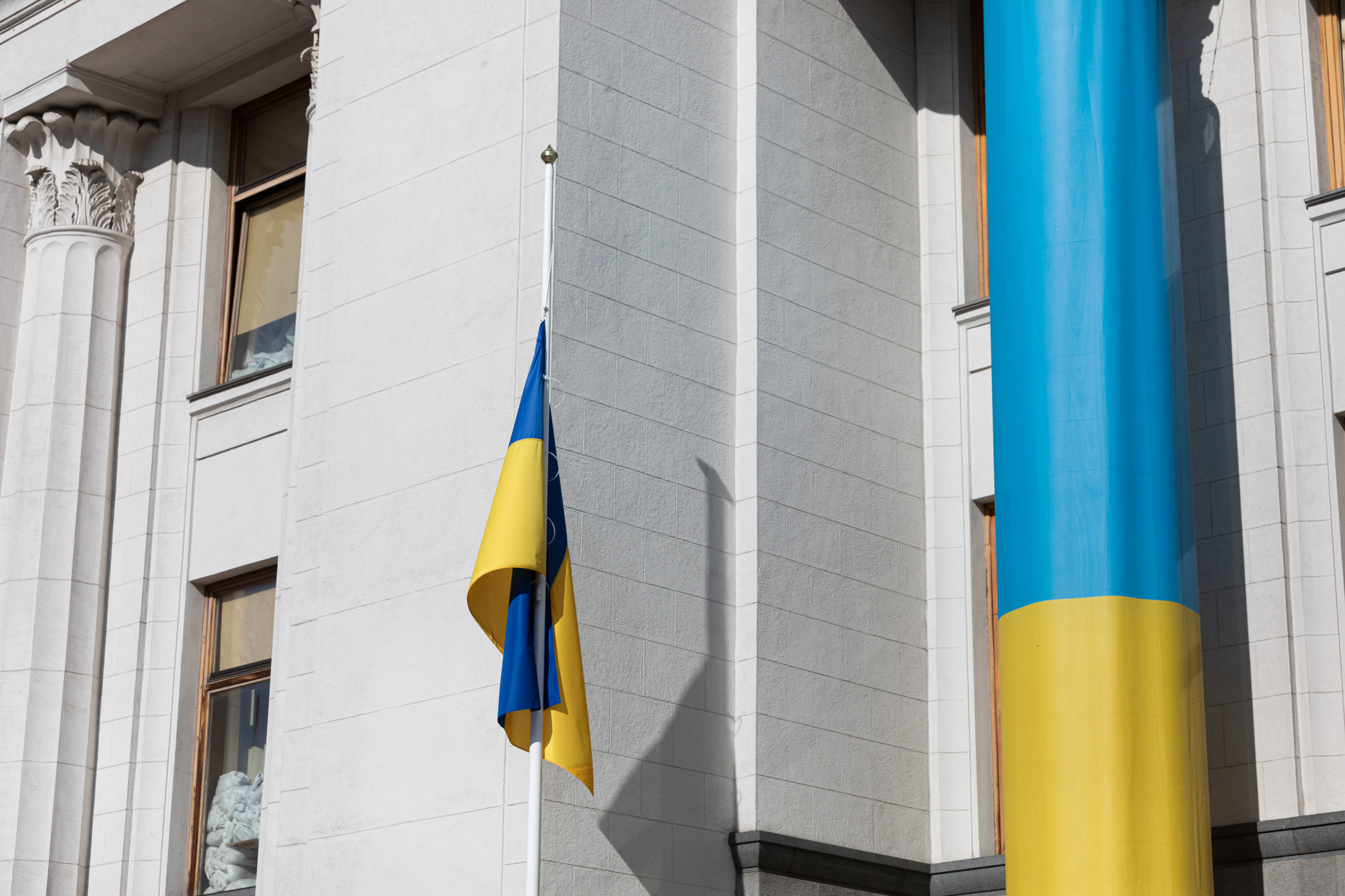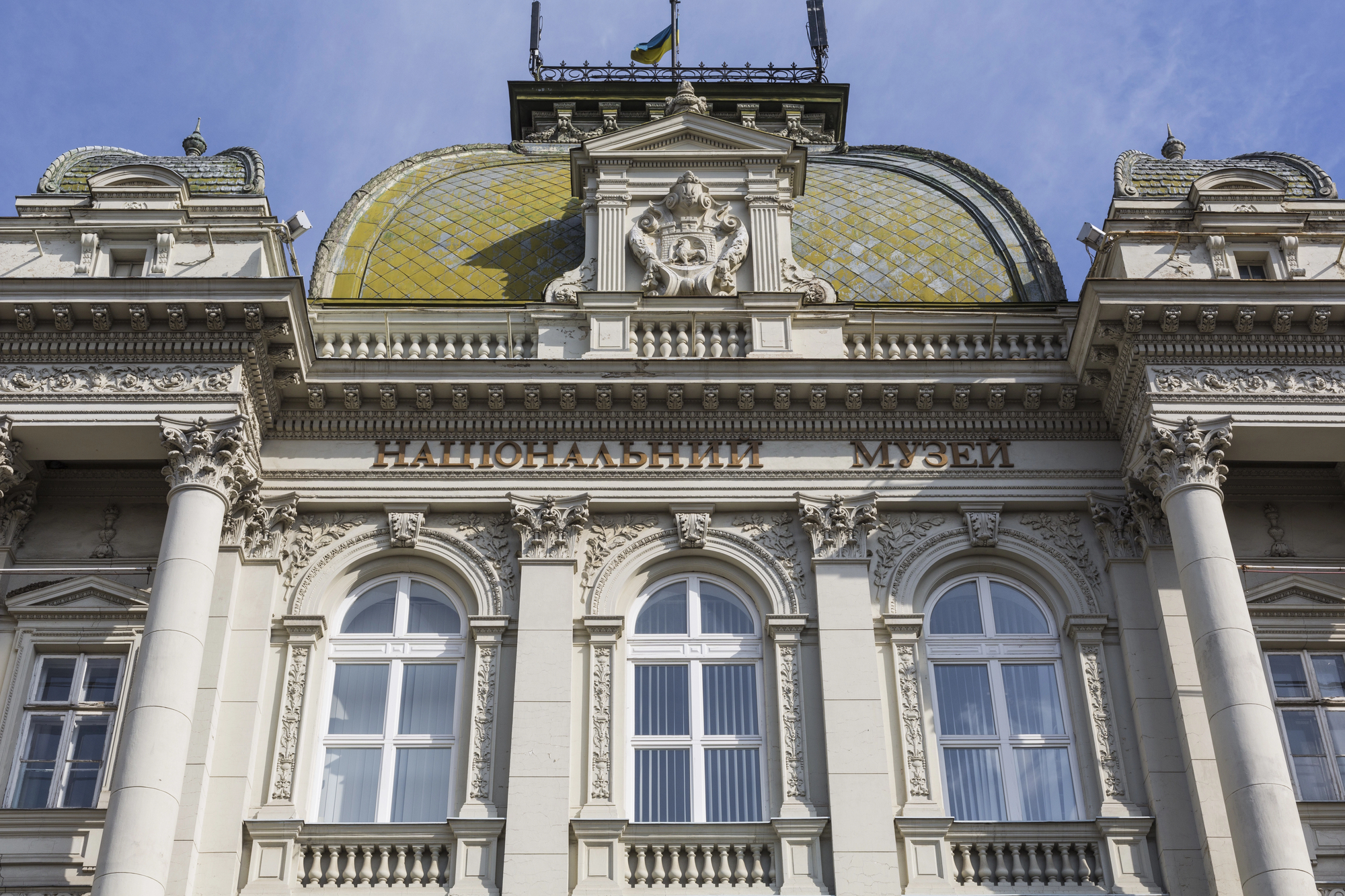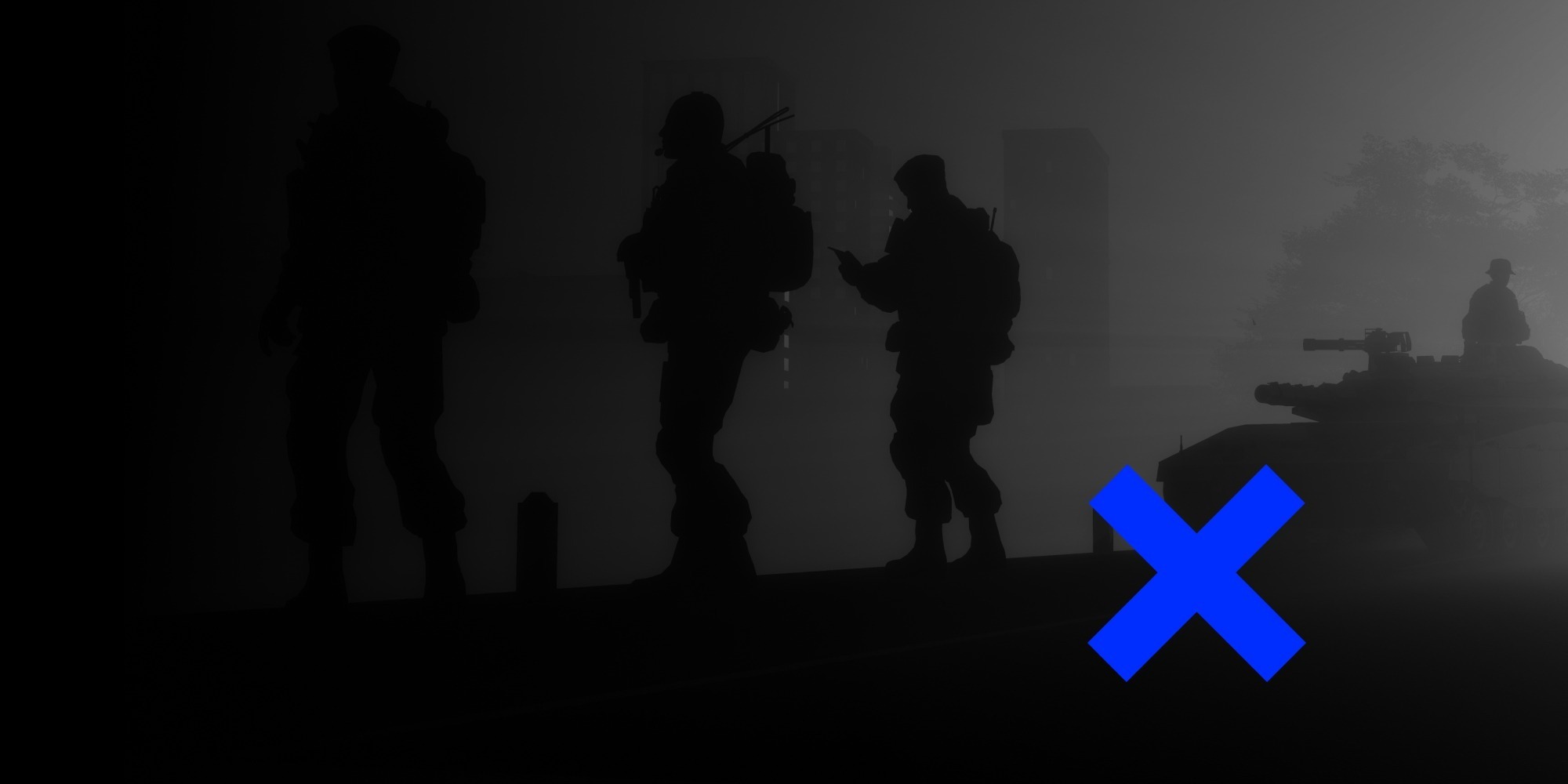German political scientist Alexander Wajnberg believes that Ukraine is living in a permanent crisis, which risks to take catastrophic. One of the essential elements of the situation stabilization is existenceof objective media. In the Ukrainian reality this role could be played by public television (First National). But its reforming is stalled by political crisis and confrontation of the prosecutor’s office and the Ministry of Internal Affairs. How to break the vicious circle?
During the past three years, the term crisis has been ubiquitous in Ukraine. No matter how much its political system adjusts or how much aid the country receives – things merely change. In order to understand how crises amplify each other, this article picks out one particular conflict. It is settled in the public media sector and is being staged by the ministry of the interior, i.e. the police, and the attorney-generalship. As a consequence of the conflict, the establishment of a public broadcaster is jammed. This episode highlights how political -and partly personal- conflicts can end up in crises, which raise false hopes about how to change politics. It is not about entrusting either populists or technocrats with the mission of pushing the democratic process forward. Such crises show that a well-balanced media system is crucial to empowering citizens so they can change something themselves.
Crises, political adjustment and financial support
From a Western Europe point of view, talking about crises has become daily routine. The more we hear this term the more we get used to it. But are we getting used to the word crisis or do we get used to the phenomenon, whatever it might be? Despite the fact that talking about crises usually expresses uncertainty, such discourses also entail appeals to act. Crises enable actors to change political, economic or social systems in ways not considered possible. Of course one could ask how the contemporary version of the term came up, in the first place. As measured by actual events in Ukraine, it was obviously the then government’s backing away from the association agreement with Europe in late 2013. It led to protests, regime violence, the annexation of Crimea and a military conflict in the eastern regions of Ukraine.
Meanwhile, the political system has adjusted, partly through democratic process and partly through international support: A new parliament was elected, new governments were appointed and a new president moved into office. Since the “Revolution of Dignity”, many political actors entered the stage. The German Federal Government, for example, has steadily expanded its – already intense – cooperation with Ukraine. In 2015, Germany’s direct financial support increased by more than 50% to around 200 million Euros, accompanied by credit guarantees summing up to 500 million Euros (fig. 1). This engagement goes back to the Ukraine Action Plan. It foresees several short-termed measures to handle emergencies, but also middle- and long-term projects targeted at structural contradictions within the politico-economic system.
Figure 1. 2015 German financial support for Ukraine (mln. €)
With this plan in cold print and the funds transferred, one might think that Germany, and Western Europe, are now permitted to devote themselves to apparently more urgent issues: the terrorist menace, a disintegrating Monetary Union and, most of all, a migration influx putting European solidarity to the proof. Regardless of these centers of conflict, the political wheels of Ukraine keep on turning, summoning one crisis after another. But what made these crises so much less newsworthy than what’s tormenting the continent – a continent, which Ukraine is, by the way, urging to be numbered among?
It is the term’s abstract relation to the Ukrainian citizens’ daily life. So far, debating on coalition crises or arguing on parliamentary crises have led to almost nothing but political stall. Everybody is waiting for decentralization, for judicial reforms, for peaceful local elections in the east and, of course, for visa liberalization with Europe. Even Germany’s reform contributions in the sectors of energy efficiency, economic development, infrastructure, rule of law, anti-corruption, civil society and education seem to simply deflect from the public perception of perpetual crisis. Why is that?
The term “Crisis”, broken down to blocked media reforms
Maybe it is time to breathe life into the phrase by breaking down the term “crisis” to one specific problem within a specific sector. One crucial reform aims at the media system of Ukraine. Germany supports this undertaking by cooperating in various areas. The education of journalists is promoted as well as the activities of bloggers and NGOs in the fields of press freedom and media monitoring. From own experience, Germany puts the development of public service broadcasting among its top priorities. On 5 August 2015 the Ukrainian Cabinet of Ministers published a resolution on reorganizing the country’s public broadcast until April 2016. Despite some definitely appreciable successes (e.g. an increasing media penetration of Pershyi Natsionalnyi), the National Television Company of Ukraine (NTCU) counters a severe problem, which reflects the ongoing political crisis on a practical level.
A crucial milestone of the institution’s path concerns its legal form. It is ought to be a joint-stock company, controlled by a supervisory board, which, at some point, will appoint an intendant. In Germany, for example, this legal form is widely spread. Among the country’s five largest media corporations, three are stock companies (“AGs”), with the Bertelsmann AG being the leading media corporation in Europe. But before the NTCU can change its legal form, all subordinate media institutes, and especially their operating assets, need to be transferred into the parent organization’s property. One of those subordinates is UKR Telefilm, a former soviet studio (with all institutional side effects and aftermaths). However, it is refusing to be integrated into the NTCU, consistently phrasing the procedure as a “hostile acquisition”. Regardless of the suspicion that this behavior might serve the cover-up of corruption, one could object that there is still the possibility of simply seizing the properties.
But two protagonist institutions for adopting such a measure find themselves on different sides of a political conflict. On the one hand, there is the executive arm of the interior: the police, responsible of physically enforcing the confiscation. On the other hand, there is the judicial part: the prosecution, withholding immediate access rights for the police. This is the focal point of how a crisis at the highest level of politics is crippling a reform with paramount practical impacts. The conflict between interior ministry and attorney-generalship prevents enriching the media sector with a neutral information provider. Counterbalancing a media system dominated by a few private media holdings is at stake.
If UKR Telefilm disregarded the law and stayed independent, this would make a precedent. It would corrupt the development of a more credible broadcasting sector, which, above all, affects the daily life of every Ukrainian citizen. According to recent polls of the GfK Ukraine and the Ukraine Confidence Building Initiative, TV has a media penetration of up to 95% while up to 83% of Ukrainian citizens inform themselves via TV news. The problem with NTCU is more than “just one hampered reform among others”. Its failure would compromise the vital tasks of supplying all Ukrainian regions with balanced information and fulfilling educational mandates towards the population.
Technocrats or populists?
Many say that technocrats are most likely to solve such crises. Experts could depoliticize decisions, replace them with scientific calculations and ensure unexcited solutions. But at the same time, crises also devaluate expertise: Loud and simplifying populist movements are on the rise, be it within the Rada or coming from the Oblasts. Since they evade a sophisticated exchange of opinions and arguments, both de-politicization and populism can be a threat to democratic processes. But what else can be done?
The daily routine of talking about crises should not lead to the dichotomy of trusting either technocrats or populists. Socially and politically handling crises should be backed by well-balanced news. It is a secure way to make abstract and complex situations more tangible for the people. Structural contradictions within the political system can only be tackled if the citizens are provided with a safe haven of unbiased news. Germany’s contributions in the area of structural reforms in the media sector underline this point of view. In light of the grand challenges Ukraine is facing, the West will not shirk from responsibility and stand by its partner to sustainably stabilize the country. And to hinder crises from becoming catastrophes.
Attention
The author doesn`t work for, consult to, own shares in or receive funding from any company or organization that would benefit from this article, and have no relevant affiliations






